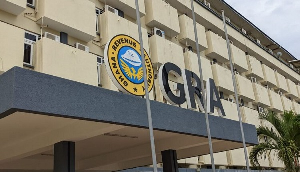Five hundred and forty six more health professionals are needed to boost the delivery of health service in the Northern Region. The shortage is made up of 57 doctors, 422, nurses, 18 pharmacists and 49 laboratory technologists and technicians.
Acting Northern Regional Minister, Ernest Debrah, announced the shortage in Accra, in an encounter named: "Meet the Press" initiated by the Ministry of Information and Presidential Affairs.
He said to address the acute shortage of skilled health personnel a first batch of 18 Cuban doctors were posted to the region last month and another batch of 11 would arrive in the country before this month ends. Mr. Debrah said in-take into the two nursing training institutions in the region had also been increased considerably so as to turn out more nurses.
There was also training for auxiliaries of 50 health aides, which began in the region last August and a training of medical laboratory assistants was also scheduled to start this month. Additionally, district assemblies in the region had been directed to sponsor health personnel during training under bond to serve the district on completion of their courses.
Mr. Debrah said reports from two sentinel surveillance sites put the prevalence rate of the HIV/AIDS pandemic rate among women at antenatal clinics at 1.4 in the year 2001 and among blood donors at 1.1, and added that the Regional Health Service was working closely with the Regional HIV/ AIDS Committee to step up education on the disease.
He said at the close of 2001, the region recorded 2,929 cases of guinea worm, representing 62 per cent of Ghana's total, noting that the region was reportedly the most endemic spot globally outside of the Sudan.
However, negative attitudes towards prevention measures, scattered settlements, poor supply of potable water and poverty were constraining efforts to eradicate the disease.
Government, in collaboration with a number of non- governmental organisations had embarked on a programme to supply potable water to rural communities in the region and expressed the hope that there would be a significant reduction in the guinea worm prevalence rate by the end of the year 2005.
Since January 2001, government in collaboration with its development partners had completed a number of projects in the health sector, including the rehabilitation of the Yendi Hospital, and the upgrading of the Walawale, Oti River and Saboba Health Centres in district hospitals.
It also started the construction of the Bimbilla Hospital under an OPEC Fund and with the assistance of the Assemblies of God Mission, opened a clinic in 2001 at Blajai in the East Gonja District, and a community initiated clinic at Zinnindow in the Gushegu Karaga District
Others were the start of a construction of two new health centres at Mpaha and Abomase under an OPEC fund and the supply of basic equipment to health centres to enhance services under agreement with Prime II, UNCEF, and UNFPA.
Mr. Debrah decried the low enrolment of children of school-going age in the region and said 53 per cent of such children were not in the classroom, He attributed the problem partly to the scattered nature of settlements in the region and noted that 75 per cent of the communities, which had less than 200 inhabitants made it difficult to bring schools closer to all communities.
Walking long distances would not help the problem, and Mr. Debrah said and urged the Ministry of Education to devise ingenuous ways to address the issue.
He also called on the elite from the region, politicians, members of parliament and other opinion leaders to help government to sensitise the people in the region to regard education as a worthy investment.
General News of Thursday, 14 November 2002
Source:












